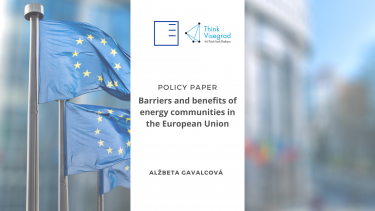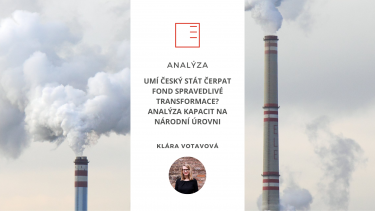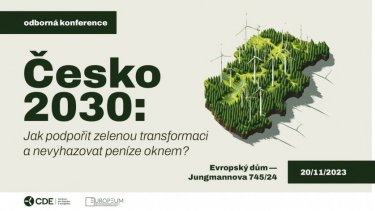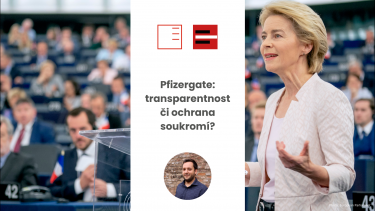Policy Paper | Barriers and benefits of energy communities in the European Union
Energy communities are an effective means to decentralize and renew our energy systems with sustainable solutions as they are usually based on renewable energy. They have already started emerging in 1970´s, yet there has been a significant increase in their development only in recent years, also in terms of their introduction into the EU legislation. Especially in Western and Northern European countries the concept already enjoys vast popularity. On the other hand, in Central and Eastern European countries (further referred to as CEE) energy communities are only beginning to emerge. The policy brief (based on literature and interviews with various stakeholders ) examines the benefits energy communities may bring, and more importantly, the main obstacles remaining in their way for greater evolution in the CEE region – and especially Visegrad countries (V4). As these initiatives progress, sharing the best practices will ensure the success of the community energy in the energy transition. Writes Alžbeta Gavalcová.
Show moreAnalysis | Can the Czech state distribute the just transition fund? Analysis of its capacities at the national level
The aim of this research report is to determine, through interviews with officials and other relevant stakeholders, whether the Czech public administration has sufficient capacity and organisational capability to effectively draw down funds from the Just Transition Fund. The author of the publication is Klára Votavová, researcher at EUROPEUM Institute.
Show moreCzech Republic 2030: How to support green transformation and not throw money out the window?
On 20 November 2023, the Centre for Transport and Energy, in cooperation with EUROPEUM Institute for European Policy, organised a conference entitled Czech Republic 2030: how to support green transformation and not throw money out the window? The conference was opened with an introduction by Josef Schwarz from the Representation of the European Commission in the Czech Republic.
Show morePolicy Paper | FROM STICK SHIFT TO SKILL SHIFT? Reskilling of automotive's employees in the eyes of the industry's stakeholders
There is no time to wait in retraining the employees of car manufacturers if we do not want our car industry to fossilize and disappear. Writes Rebeka Hengalová, research fellow at EUROPEUM Institute.
Show moreRILSA | The uncertain fate of the Green Deal for Europe ahead of the European Parliament elections
Farmers' protests have reminded that the measures of the Green Deal for Europe may not be politically viable for Europeans. To make climate policies politically viable, the EU should therefore focus on its commitment not to leave anyone behind in the green transition. Klára Votavová, a researcher at EUROPEUM Institute for European Policy, discusses the current development of the Green Deal for Europe and its social policy aspects in an expert publication for the Social Policy Forum.
Show moreHospodářské noviny | More than five million people will need to be retrained in the Czech Republic by 2030. Car industry will mainly face the problems
The Czech car industry is lagging behind the rest of Europe and the world. It may not be able to pick what to produce, but it has the opportunity to strengthen its competitiveness and resilience. However, it needs trained and educated employees, which are hard to find on the local labour market. So are we going to train the automotive workforce, strengthen the position of our strategic sector and promote a just transformation? Or are we going to continue to say that the transition to electric mobility does not concern us and that the Green Deal for Europe is to blame for increased unemployment? How to produce electric cars and remain competitive? Rebeka Hengalová, a researcher at EUROPEUM Institute, discusses this topic in her article for economic daily Hospodářské noviny.
Show moreiRozhlas.cz | Pfizergate: Transparency or Privacy Protection?
Recent investigation into the purchase of Pfizer vaccines by the EU has revealed the involvement of Ursula von der Leyen, President of the European Commission, raising questions about transparency and accountability. With the interconnection of several cases, including allegations of undisclosed agreements and legal actions, attention to negotiation processes and financial management within the Commission is increasing. The outcomes of these investigations may influence public trust and future leadership of the EU, highlighting the delicate balance between transparency and privacy protection. Žiga Faktor, Deputy Director and Head of the Brussels Office of the EUROPEUM Institute, offered a commentary for iRozhlas.cz.
Show more
TV Nova | Czech Republic drew the most money from EU funds for transport
The Czech Republic uses the most money from EU funds for the reconstruction of railway stations, new railway corridors or new motorways. At the same time, traffic is continuously increasing and in some places the capacity is no longer sufficient. Rebeka Hengalová, researcher at EUROPEUM Institute, commented on this issue for the main evening broadcast of TV Nova.
Show moreČRo Radiožurnál | Use of Russian assets under the European Peace Facility
The European Commission has proposed how to make use of frozen Russian assets in Europe after the start of the Russian invasion of Ukraine. Up to ninety percent of the assets would be used to buy weapons for Ukraine under the so-called European Peace Facility. The remaining 10% would be transferred to the EU budget and used for the recovery and reconstruction of Ukraine. The proposal still needs to be unanimously approved by EU foreign ministers. Martin Vokálek, Executive Director of EUROPEUM Institute, commented on what this proposal will mean for Ukraine and the European Union for Czech Radio Radiožurnál.
Show more
Preparing news media in Bosnia and Herzegovina and Serbia for the digital age
The project aims to equip civil society organisations in Bosnia and Herzegovina and Serbia with comprehensive knowledge of media pluralism, media freedoms, and access to information necessary in the digital transition of the news media sector.
Show more
Staroměstské náměstí 4/1
Prague 1 - Staré Město
110 00
tel.: +420 212 246 552
email: europeum@europeum.org
https://www.europeum.org









